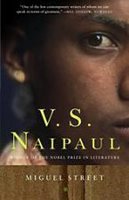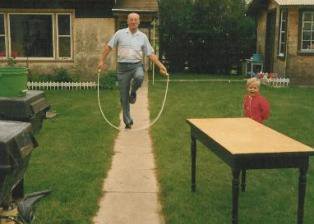When you go to the doctor for a checkup, they tend to ask you a lot of real personal questions.
I mean, they ask you so many questions, that sooner or later they are bound to hit upon something that will merit a prescription of some sort. You may end up leaving with this list of things to ingest and stuff to do, when all the while you were thinking you were pretty dang healthy on the way in to the examining room!
This happened to me once.
I made the mistake of answering “yes” to Question 812.
Things were going along real good, I mean, when it comes down to it, I’ve always been very healthy.
I have never stayed in a hospital for even one day in my life, and not that I’m counting, but we’re talking about 15,318 days of hospital-free living here! However, before the doctor was finished with me on this day of my checkup, he would succeed in committing me to at least one NIGHT in the hospital.
Things were going well. I was answering "NO – NO - NO" to every question, as he ticked off my responses on some sort of list, right up until he asked me, “Do you ever feel tired throughout the day?”
Sweet Lord.
“I feel tired EVERY day,” I answered. “Like you mean, at work and stuff?”
He said “Yes, throughout your normal day.”
I stupidly replied, “Well, at any given point of the day, I could pretty much fall asleep leaning on the nearest wall.... so YES... I guess I would have to say yes.”
Well!
WRONG ANSWER!
Now I was led back to the little table with the sandwich paper on it.
I had to go through a re-groping, coughing, and searchlight analysis. He shone this flashlight into my throat and stuff.
Then he mumbles.... “Yep. A-huh...”
“Whaaaaa... whaaaaaa?”
“Well, you have a narrow throat,” he says.
“What?”
“Do you get a good night’s rest? Do you snore when you sleep?” he asks me.
“Well, I sleep alone. Or with a cat, rather, and so far Jack has not said anything about my snoring...”
“I think you may have sleep apnea. I’m going to recommend that you undergo a sleep study.”
Here's me, now... “No, no, doctor. See. Let me explain. I happen to know why I am tired all the time. It is simply because I go to sleep so late every night, and have to wake up so early. But sleeping... no, I have no problem sleeping. I can drink eight cups of coffee and lay down and be sleeping in minutes. It’s waking up that bothers the hell out of me! Now... if you could prescribe a WAKE-UP study.... then I think I’d be interested.”
But then he explained that I may think I am getting a restful sleep, when in reality I am not "entering in" to the full experience of sleep as one should, when sleeping.
And how do you argue with a doctor?
How do you say "No" to the same guy who has so recently fondled your genitalia?
I was scheduled for the sleep study.
For those of you who do not know about it, this means you have to go and sleep at a hospital.
So.
I arrived on the prescribed evening, not tired in the slightest. But I brought some books to read and thought that I’d make this as fun as possible... sort of like going to a hotel and stuff.
I was about to have a rude awakening, before sleeping.
Immediately, the nurse said, “OK sir. Please go into room B there and get ready and the nurse will be in momentarily to wire you up.”
“Excuse me?”
She looks at me, over her clipboard.....
Surely they don’t know what time it is, I’m thinking.
“Surely you don’t mean that I’m supposed to go to sleep now?”
“Oh yes. Well, we can give you a few minutes if you like, but really, our study is timed to begin promptly at...”
“BUT IT’S ONLY 9 p.m.! I haven’t gone to sleep at 9 p.m. since I was five years old!”
Her answering glare said it all.... I went into Room damn B and got ready.
I threw on my Winnie-the-Pooh T-shirt and shorts and lay there in bed like someone well into stage-5 rigor mortis. Staring at the ceiling, my eyes scanned to the top corner where I noticed a video-camera staring down at me.... and just as I was thinking a thought that can ONLY be translated as “What the hell?” the door opened, and in walked a young nurse, dragging behind her a contraption with a spool of wire on it that could easily supply electricity to a small town.
After an extremely brief introduction and absolutely no small talk, she began hooking up wires to parts of me I didn’t even know I had. I am not kidding when I say that within minutes there were no less than twenty or thirty separate wires attached to various parts my head, via a plastocine sort of rubbery adhesive. Other wires went to my knees, the calves of my legs, my eyelids, my waist, my chest, my back, my shoulders, some tubey things were taped just below each nostril. I had stuff EVERYWHERE!
I began to envision what the report would be the next morning.... “Well sir, admittedly, most of you went into a coma, but strangely, your nipples were awake all night!”
I mean.... I just couldn’t move an inch in any direction after all of these wires and gizmos were attached to me. I am sure that no astronaut upon liftoff has ever had so many wires coming out of him.
And I am a thrasher.
Like, I like to move when I sleep.
Jack HAS told me about this part of my nocturnal habits, because I have kicked him from the bed many a time! And I hate sleeping on my back.
But here I was now, wired to the gills, laying there like an unplugged robot....thoroughly immobilized, as the nurse finished up by saying... “OK, just get comfortable now, and we will be speaking with you in a bit.”
And she left the room.
As the door clicked shut I swear I imagined I could hear the opening theme music from that movie 2001: A Space Odyssey.... you know the one I mean? Then, just as the big tympani drums were pounding, from directly behind my head [I am not making one word of this up, or exaggerating one iota]... from a speaker in the wall right behind my head, came a calm female voice, instructing me to obey various gradations of humiliating procedures.
“OK sir. We would like you to wink one eye, your left eye. Now, your right.”
[I’m looking up at the video-camera thing, envisioning a roomful of nurses rolling on the floor laughing....]
“Now breathe in, real slowly. OK, exhale. Tense you right calf. Move your left knee a bit. OK, wiggle your nose like Samantha in Bewitched.”
It was driving me crazy.
Then they said.... “OK. Good night. Have a good sleep.”
Silence.
And darkness. Nothing but the little red light, up in the corner of the room, on that camera.... and amazingly, I did fall asleep.
Throughout the night I awakened several times, probably throwing needles into a spasmodic pandemonium on a distant scroll of graph paper, but overall, I did sleep fairly well.
I awoke very early. I am still not sure if I was awakened by a sound or if I awoke on my own.
But within a minute another nurse entered Room B and commenced unhooking me. Peeling away the clumps of Play-Dough in my hair and whatnot.
I looked pretty funky leaving the hospital after completing my “study”.
They made me sign a thing, and gave me a piece of paper that said something on it.
Did my doctor ever call me and say one thing about this study?
No.
And he has since moved on. Actually physically moved away. Perhaps skipped town, I’m not sure. All I know is I have yet to find another personal physician.
But I’ve learned my lesson about Question 812.
Till today I am not sure if it was all a dream.
Or just a big joke, of which I was the electrically monitored butt.
********
 From as early on as I can remember remembering anything memorable, I loved words. And loved reading words.
From as early on as I can remember remembering anything memorable, I loved words. And loved reading words.


 This book was a selection in a reading group I once was a part of, and we were unanimous in our enjoyment of it. It was our highest rated of all the books we had read over an eighteen month period, and remains as one of my all-time favorite novels.
This book was a selection in a reading group I once was a part of, and we were unanimous in our enjoyment of it. It was our highest rated of all the books we had read over an eighteen month period, and remains as one of my all-time favorite novels. There's no two ways about it... this book is funny. Witty. Endlessly sarcastic. There I am, reading it in the park, and laughing out loud in certain parts, like a bit of a loonie!
There's no two ways about it... this book is funny. Witty. Endlessly sarcastic. There I am, reading it in the park, and laughing out loud in certain parts, like a bit of a loonie!
























